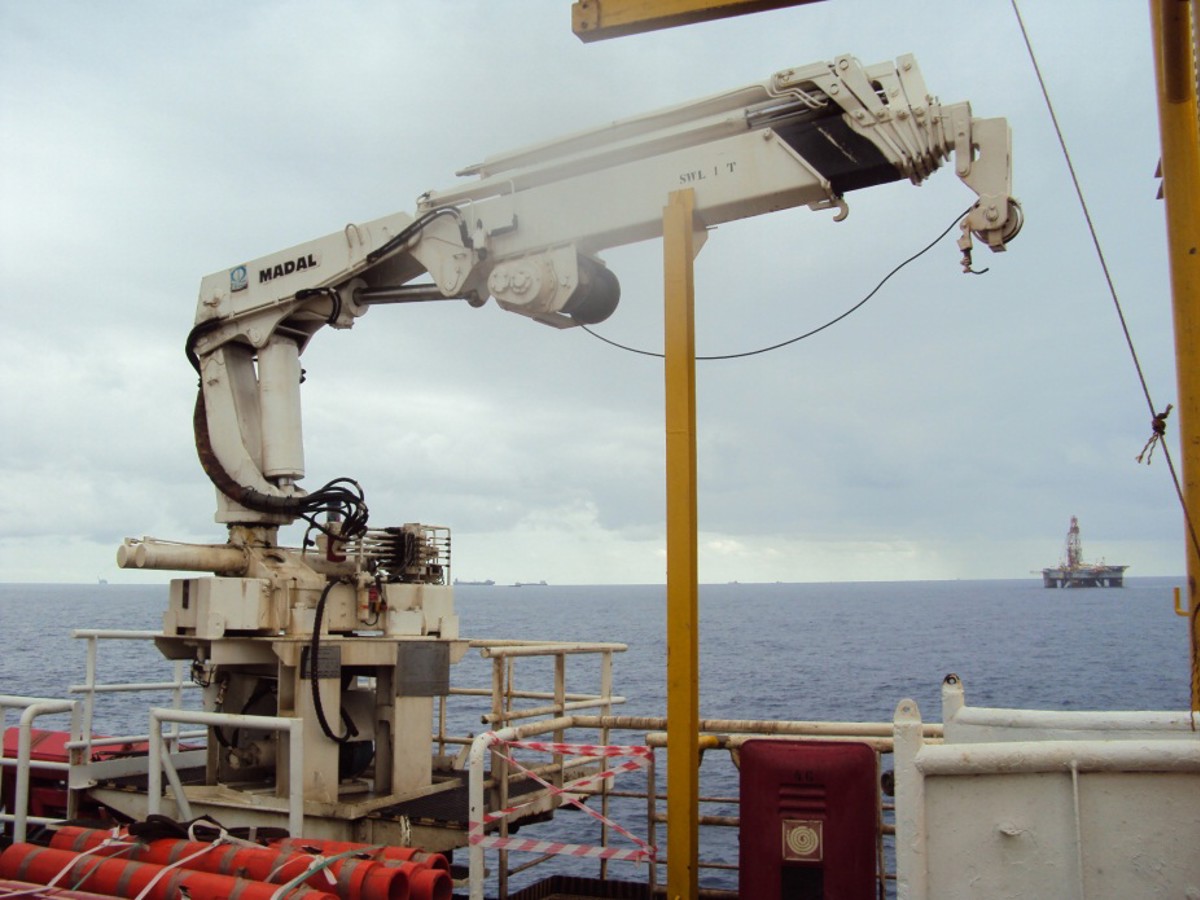Near-miss: Crane hook block dropped to deck
- Safety Flash
- Published on 25 January 2012
- Generated on 18 July 2025
- IMCA SF 01/12
- 1 minute read
Jump to:
A Member has reported an incident in which a crane winch wire parted and the hook block was dropped to deck.
What happened?
The incident occurred when the crane operator began to extend the jib of the crane without letting out the winch wire at the same time. The extending jib caught the hook block and caused the crane winch wire to part. The hook block, which weighed 30kg, dropped 10 metres (m) to the deck. There were no injuries.

Crane following incident
Our member’s investigation revealed the following:
- The crane operator was not paying proper attention to the extending jib.
- The crane operator had not informed his supervisor that this work was taking place;.
- The crane operator was effectively working alone: there was no-one else watching the crane whilst it was being operated.
- There was no locking or warning mechanism fitted to the crane to prevent this from happening.
The following measures were taken to prevent recurrence:
- Review training of persons operating cranes and winches.
- Review of risk assessment for this job.
- Investigate installation of lock protection sensors for this kind of crane.
IMCA Safety Flashes summarise key safety matters and incidents, allowing lessons to be more easily learnt for the benefit of the entire offshore industry.
The effectiveness of the IMCA Safety Flash system depends on the industry sharing information and so avoiding repeat incidents. Incidents are classified according to IOGP's Life Saving Rules.
All information is anonymised or sanitised, as appropriate, and warnings for graphic content included where possible.
IMCA makes every effort to ensure both the accuracy and reliability of the information shared, but is not be liable for any guidance and/or recommendation and/or statement herein contained.
The information contained in this document does not fulfil or replace any individual's or Member's legal, regulatory or other duties or obligations in respect of their operations. Individuals and Members remain solely responsible for the safe, lawful and proper conduct of their operations.
Share your safety incidents with IMCA online. Sign-up to receive Safety Flashes straight to your email.